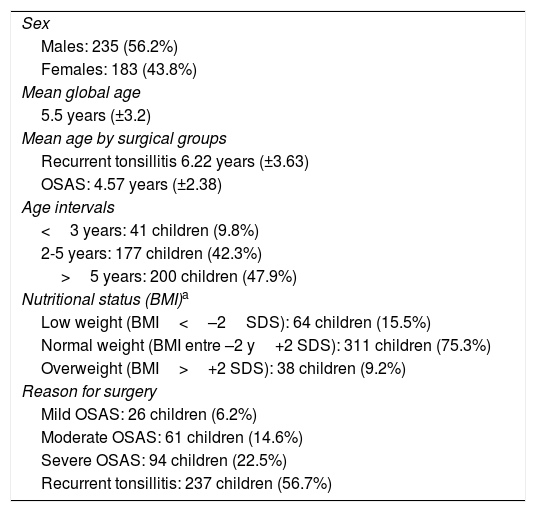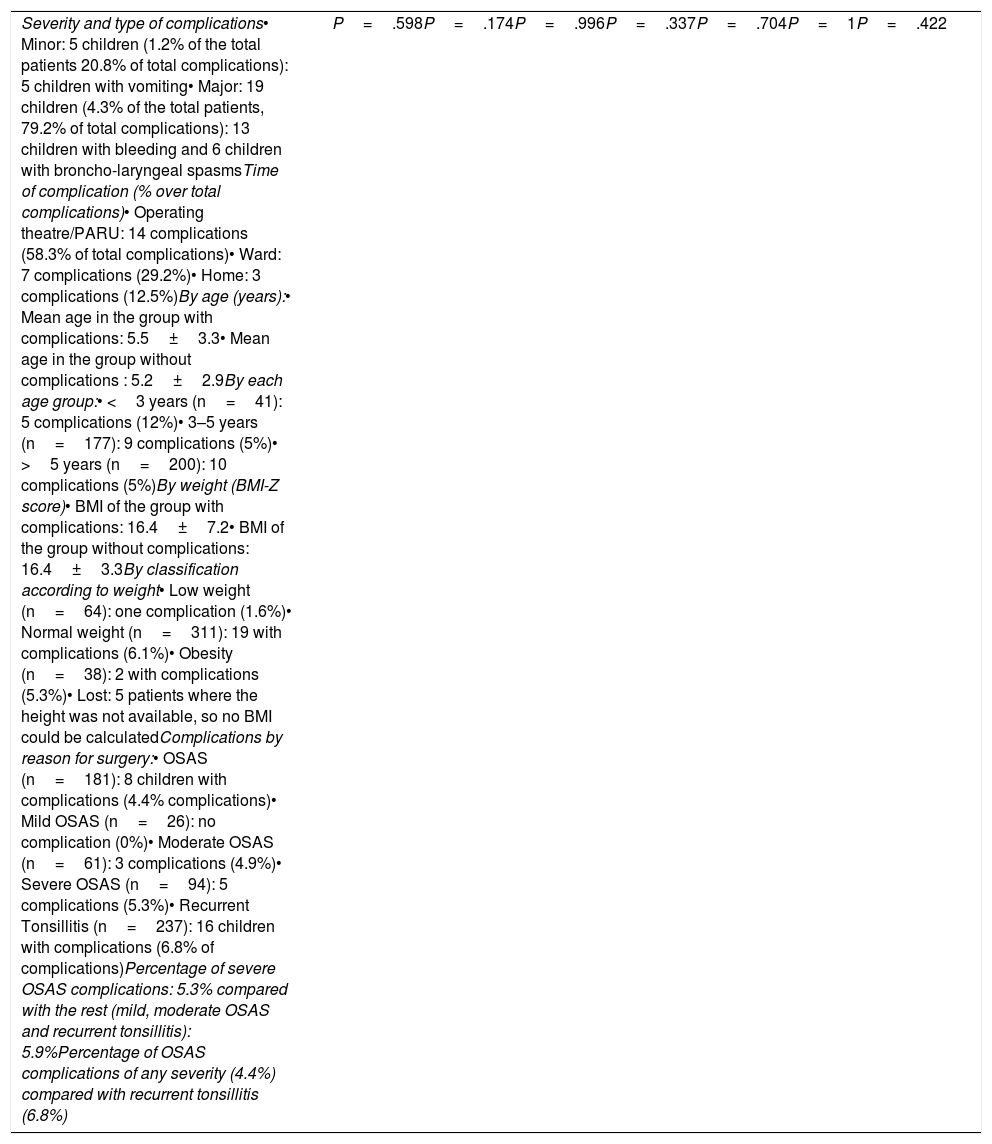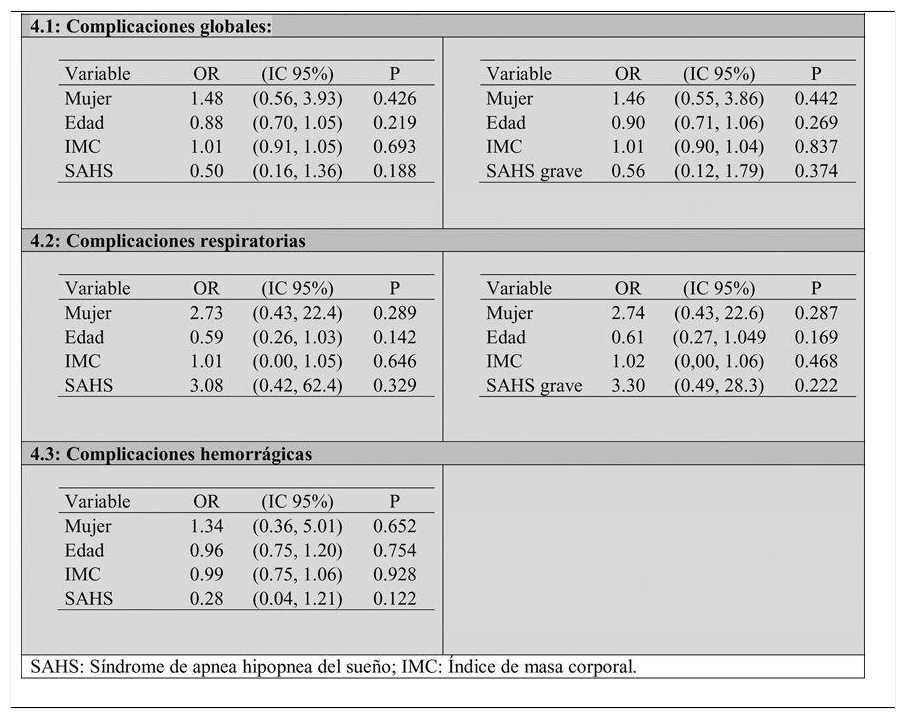Adenotonsillectomy is a surgery to treat recurrent tonsillitis or obstructive sleep apnoea syndrome (OSAS). It is considered a safe procedure, with few complications. Moreover, patients over 3 years and without comorbidities do not present a higher rate of respiratory adverse events after the immediate postoperative period, and do not need systematic admission to a paediatric intensive care unit (PICU), regardless of their OSAS severity. The aim of this study is to reanalyse the situation, including patients under the age of 3 years, for whom there are fewer available data, to confirm that this trend has not changed.
MethodsA retrospective observational study was performed, including all adenotonsillectomised children in our hospital over 5 years.
Results418 adenotonsillectomised children were included, 56.7% due to recurrent tonsillitis, and 43.3% because of OSAS. Only 24 patients (5.7%) experienced adverse events, of whom 1.2% had vomiting, 3.1% bleeding, and 1.4% respiratory events. All the respiratory events occurred in the operating theatre or in the post-anaesthetic unit, most frequently in children with severe OSAS, while the tonsillitis group had more bleeding (P=.046). No differences in complications were observed according to age (P=.174), but the group of patients under three years was relatively small.
ConclusionsNo differences were found in the percentage of complications between the two groups. Although the OSAS group exhibited more respiratory events, these occurred in the immediate postoperative period; otherwise, there was a higher risk of bleeding in the tonsillitis group. These results support the findings indicating that routine PICU admission is not required for these patients.
La adenoamigdalectomía es una cirugía indicada por amigdalitis recurrentes e igualmente por síndrome de apnea-hipopnea del sueño (SAHS). Es considerada segura y con pocas complicaciones. Así, en pacientes mayores de 3 años y sin comorbilidades, no hay más complicaciones respiratorias (fuera del postoperatorio inmediato), por lo que no precisan la hospitalización rutinaria en unidad de cuidados intensivos pediátricos (UCIP), independientemente de la gravedad del SAHS. El objetivo de este estudio es reanalizar la situación, para comprobar que esta tendencia se mantiene, poniendo especial énfasis en menores de 3 años, subgrupo donde hay menos datos disponibles.
MétodosEstudio retrospectivo observacional, incluyendo los niños adenoamigdalectomizados en nuestro centro durante 5 años.
ResultadosSe operaron 418 niños (56,7% por amigdalitis y 43,3% por SAHS). Sólo 24 (5.7%) tuvieron complicaciones: un 1.2% vómitos, un 3,1% sangrados y un 1.4%, respiratorias. Estas últimas ocurrieron siempre en quirófano o recuperación post-anestésica y más frecuentemente en SAHS grave, mientras que las amigdalitis tuvieron más sangrados (p=0,046). No hay diferencias por edad (p=0,174) aunque el subgrupo de menores de 3 años sigue siendo más pequeño.
ConclusionesNo encontramos diferencias en el porcentaje de complicaciones entre SAHS y amigdalitis. Las amigdalitis tienen más sangrados; y el SAHS grave más complicaciones respiratorias, pero siempre en el postoperatorio inmediato en nuestra serie. Estos datos apoyan la hipótesis previa de no ingresar rutinariamente en UCIP salvo en los casos anteriormente mencionados.
Artículo
Comprando el artículo el PDF del mismo podrá ser descargado
Precio 19,34 €
Comprar ahora











